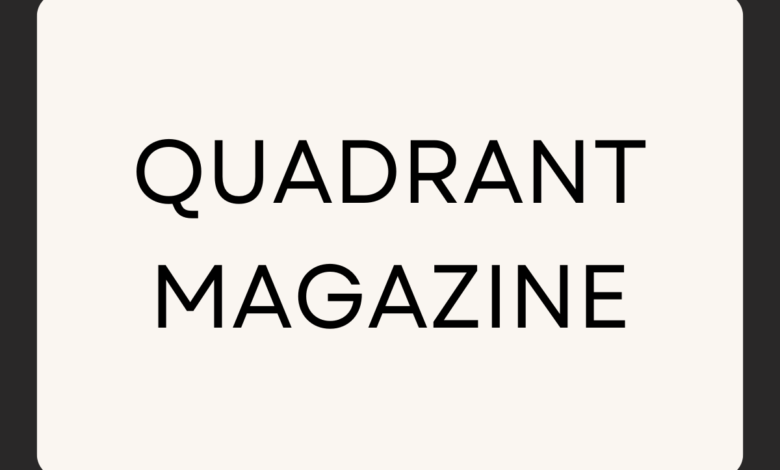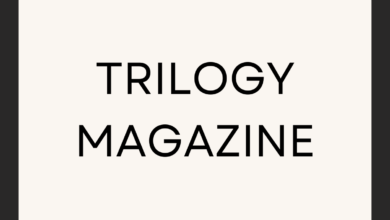Quadrant Magazine: Conservative Insight, Liberal Values

Quadrant, a literary and political platform deeply rooted in the Australian narrative, has been an enduring bastion for conservative commentary and classical liberal thought for decades. With its commitment to cultural freedom, anti-totalitarianism, and classical liberalism, Quadrant Magazine navigates the complex terrains of political discourse, offering its readers a rich blend of literary reviews, poetry, fiction, and incisive essays that dissect the cultural, political, and historical moments of our time.
The Legacy of Quadrant Magazine
Founded in the wake of World War II, Quadrant was conceived as a literary and cultural journal that could wrestle with the ideological conflicts of the 20th century. It emerged during a time when the global stage was fraught with new threats to democratic freedoms and personal liberties. Quadrant’s philosophy was crystal clear from the outset: to staunchly defend democratic values and provide a forum for intellectual and cultural engagement.
With a heritage spanning over six decades, Quadrant has evolved to adapt to the digital age while maintaining its print presence, intertwining traditional journalism with the reach and immediacy of online content. Its pages have been graced by some of the most influential conservative thinkers and writers, contributing to a tapestry of discourse that champions free thought and counters totalitarian tendencies.
The Editorial Line of Quadrant
Quadrant has always prided itself on its clear editorial stance. Described as having a “bias towards cultural freedom, anti-totalitarianism and classical liberalism,” it has been unyielding in its convictions. At a time when the boundaries of cultural and political dialogue are vigorously contested, Quadrant stands as a platform for those who espouse the principles of individual liberty and scepticism of concentrated power.
The magazine’s focus is not limited to political editorializing; it encompasses deep dives into the annals of history, contemplative musings on culture, and literary contributions that span the gamut from poetry to short stories. This diversity of content is bound by a common thread of promoting robust debate and a reverence for Western intellectual traditions and achievements.
Contributions to Cultural Discourse
Quadrant offers a varied tapestry of contributions that enrich Australia’s cultural discourse. Commentaries dissect contemporary sociopolitical events with a sharp eye, offering perspectives that challenge mainstream narratives. Meanwhile, essays and opinion pieces serve as a crucible for reflection on enduring issues, providing a long-form contemplative analysis that supports measured and articulate discourses.
In its pages, issues such as free speech, the role of government, and the clash of civilizations are dissected and deliberated. Advocacy for liberalism — in the classical sense — manifests through argumentation championing the individual’s rights against regulatory encroachments and ideologies that undermine foundational Western values.
The Literary and Artistic Side of Quadrant Magazine
The print edition of Quadrant has a distinct appreciation for literature and art, offering a sanctum for the creative arts alongside its political and cultural commentary. Recognizing the power of creativity, it publishes poems and fiction pieces that resonate with its broader themes but also stand alone as works of art. It lays particular emphasis on literature reviews, recognizing the profound impact literature has on shaping minds and, subsequently, societies.
Quadrant appreciates the intricate dance between art and politics, how one reflects and shapes the other. The magazine does not shy away from critiquing contemporary artistic trends or celebrating creative works that align with its philosophical ethos.
The Impact and Challenges of Quadrant Magazine
Quadrant Magazine has not been without controversy or challenge. Its forthright publishing style and conservative outlook have often placed it at the center of cultural and academic debates. This scrutiny, however, only solidifies Quadrant’s role in the broader conversation on national and global issues.
Despite facing an era where print media’s survival is in question, Quadrant has remained staunch in its mission, continuing to publish printed editions while expanding its digital footprint. The challenge of balancing traditional and digital modalities is one that Quadrant approaches with an understanding of the strategic importance of both.
Conclusion – Quadrant as a Cultural Sentinel
In an epoch marked by rapid political shifts and cultural metamorphoses, Quadrant remains a cultural sentinel and intellectual forum for debate and introspection. Its resilience as a publication reflects the enduring relevance of its core values which faithfully buttress its content—whether in print or pixels.
The relevance of Quadrant transcends its Australian roots, touching the pulse of universal discussions on democracy, freedom, and cultural integrity. In a world that increasingly looks for editorial bravery and diversity of thought, Quadrant stands tall, unapologetic about its stances and unwavering in its pursuit of a free society underpinned by classical liberalism.
The future of Quadrant lies in its ability to engage the next generation of readers and thinkers—those who will take the torch of liberty forward, challenging dogma and nurturing a culture of intellectual humility and enlightened conversation. Regardless of the medium through which its message travels, Quadrant’s spirit remains imperishable — a testament to the resiliency and vitality of the ideas it represents.
For thinkers, artists, and political enthusiasts alike, Quadrant serves not only as a chronicle of conservative thought but also as a platform for the varied voices that make up the rich orchestration of a functioning democracy. Its continued contribution to the global marketplace of ideas is both an inheritance and a promise of enduring commitment to the principles that form the very bedrock of free societies.



